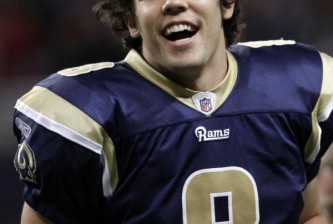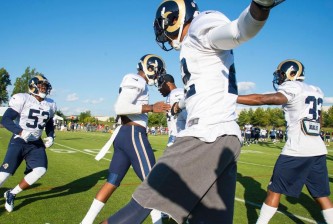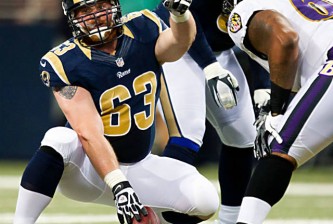
For Josh McDaniels, returning to the New England Patriots after architecting the NFL’s worst offense with the St Louis Rams must have felt like waking up from a horrible nightmare. At first. Before his moment of redemption in the Super Bowl was taken down by the same freak occurrence that haunted his existence in St Louis: dropped passes.
There’s no more damaging thing to an offensive coordinator than a drop. You can drill players until you’re hoarse in training camp (as McDaniels did) to get them to understand their routes, their timing, and the fine points of execution. You can put your quarterback and receiver on a metronome until the footwork, the head fake, the precision-timed crossing routes are run to perfection.
Then the ball arrives.
As I wrote over at ThisGivenSunday.com in our Super Bowl analysis. Wes Welker’s drop appeared to introduce a contagious panic among Patriots receivers. Immediately after Welker’s drop, Deion Branch got separated from the ball by Corey Webster to force a punt. Hernandez dropped Brady’s first pass of the next drive, Branch dropped another, and Brady was sacked while trying to buy time on a third.
Suddenly the Patriots faced fourth down, literally and figuratively, as the clock and their hopes for winning eroded away.
It was a scene that was all too familiar to Rams fans. It was pretty much the summary of our entire season, and Sam Bradford’s nightmare passing year in particular. While injuries limited him to 399 dropbacks, he lost more yards to dropped passes per game than any other quarterback in the NFL, according to stats kept by ProFootballFocus. And it started in week one, with a Lance Kendricks drop on the team’s second drive of the year.
Kendricks’ drop on a simple swing pass out of the backfield was the first of a mind-boggling eight passes from Bradford that were flat-out dropped in this game. If panic is contagious, this was an epidemic worthy of the CDC. And it went counter to the way the Rams wanted to build.
In April, McDaniels and the Rams made a statement in the draft – that the current crop of pass catchers wasn’t good enough. And the common factor among each of the players drafted in the second, third and fourth rounds – Kendricks, Austin Pettis and Greg Salas – was the quality of their hands. The Rams went out of their way to build a “good-hands” team, centered around Wes Welker’s clone in blue and gold, Danny Amendola.
Amendola did his job for 45 minutes of the 2011 season, catching five of the six passes sent his way. Then he pivoted awkwardly on his left arm, dislocating an elbow and ending his season.
Among the rest of the Rams receivers, only Greg Salas had a catch percentage higher than 60% the rest of the way. (Supposed savior Brandon Lloyd had 7 drops by himself and a 48.6% catch rate.) And the group accounted for 31 dropped passes, by far the most in the NFL.
Can drops be coached out of a team? I don’t know the answer to that. Would a few more catches have prevented the plague of injuries that kneecapped the Rams’ season and dropped the guillotine on our coach and general manager? Probably not. But the offense would certainly been better, we would probably have a few more wins on the season, and it’s possible that the marriage of Bradford and McDaniels might have stuck.
So perhaps there was a drop of bitter justice for Rams fans that Josh McDaniels, Sam Bradford’s runaway bride, found the same troubles waiting for him in New England as he did here in St Louis.






















